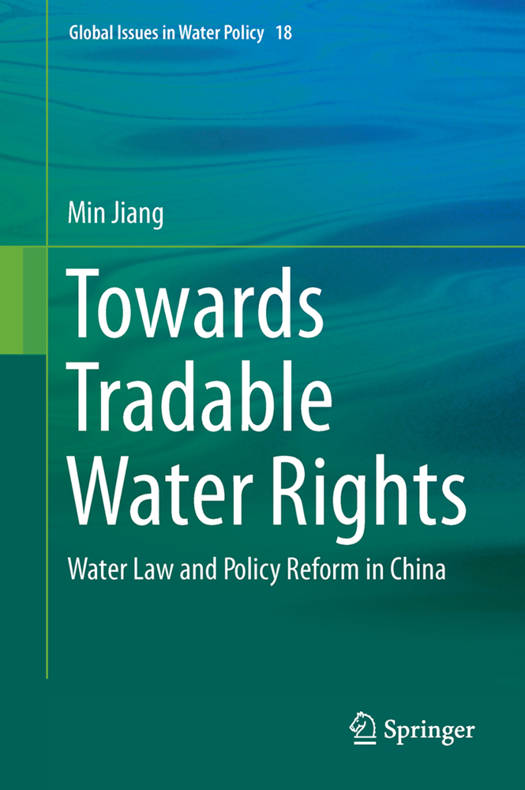
- Retrait en 2 heures
- Assortiment impressionnant
- Paiement sécurisé
- Toujours un magasin près de chez vous
- Retrait gratuit dans votre magasin Club
- 7.000.0000 titres dans notre catalogue
- Payer en toute sécurité
- Toujours un magasin près de chez vous
153,95 €
+ 307 points
Format
Description
This book provides a first comprehensive legal examination of water rights arrangements and water rights trading in China. Although recent water reform in China has made substantial progress in policy development and practice, how its legal and institutional framework facilitates or hinders the application of tradable water rights remains less addressed in the existing scholarship. Against the backdrop of China's water reform and the wider international debate in water governance, this book aims to provide an innovative approach to the complex issue of water governance by critically analysing the recent legal and policy developments in China towards tradable water rights. It examines the deficiencies of the current systems for water rights arrangements and trading, explores how China may learn from and build on the international trends in water rights trading practice (mainly Australia and the US), and proposes legal and policy frameworks for defining and administering tradable water rights in China that underpin sustainable water use in the face of exacerbated water scarcity, variability, and uncertainty. All in all, the book proposes pragmatic strategies for China's water law and policy reform to move towards tradable water rights, which encompasses a comprehensive prescription from initialising and defining tradable water rights to administering water rights and trading. By reflecting on the deepening water reforms in both China and other jurisdictions, the book aims to contribute to the international water governance debate by exploring from a legal and policy perspective, how China, comparative to other cases around the world, can find a balanced combination of water allocation mechanisms to address its water challenges. It is hoped that the observations and proposed implications for China's water reform will contribute to developing a better understanding of the way in which experiences in water markets can be shared from jurisdiction to jurisdiction.
Spécifications
Parties prenantes
- Auteur(s) :
- Editeur:
Contenu
- Nombre de pages :
- 243
- Langue:
- Anglais
- Collection :
- Tome:
- n° 18
Caractéristiques
- EAN:
- 9783319670850
- Date de parution :
- 12-10-17
- Format:
- Livre relié
- Dimensions :
- 158 mm x 243 mm
- Poids :
- 566 g

Seulement chez Librairie Club
+ 307 points sur votre carte client de Librairie Club
Les avis
Nous publions uniquement les avis qui respectent les conditions requises. Consultez nos conditions pour les avis.







